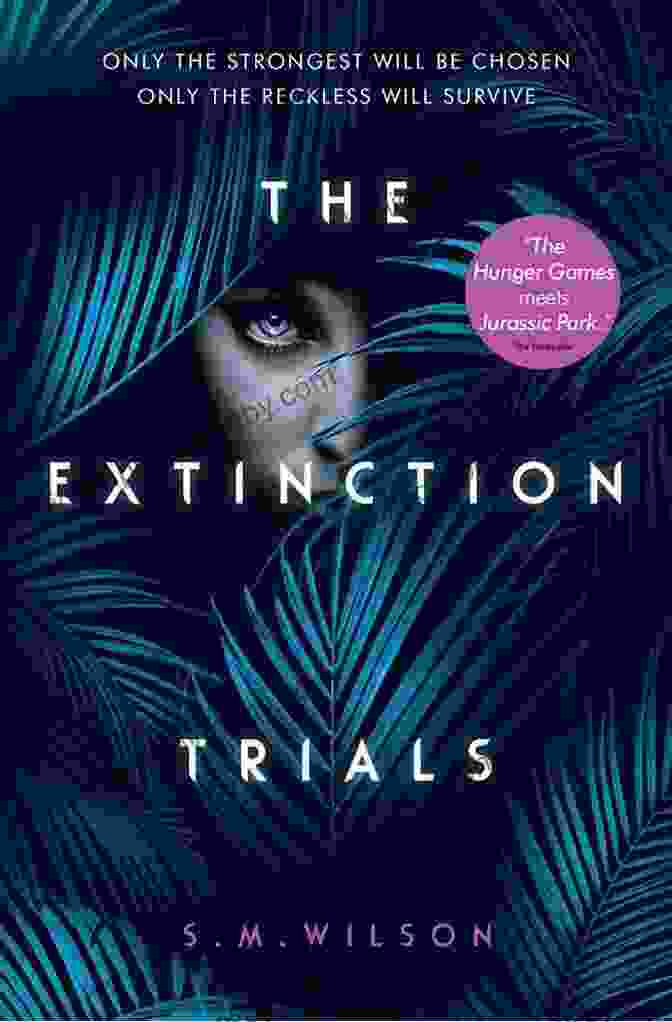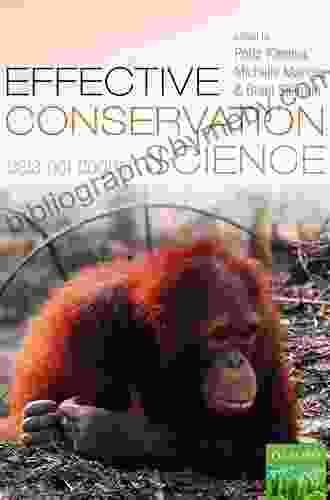The Anthropology of Extinction: Unveiling the Human Role in Species Loss


5 out of 5
| Language | : | English |
| File size | : | 3179 KB |
| Text-to-Speech | : | Enabled |
| Screen Reader | : | Supported |
| Enhanced typesetting | : | Enabled |
| Word Wise | : | Enabled |
| Print length | : | 255 pages |
| Lending | : | Enabled |
An in-depth exploration of one of the most pressing issues of our time
The Anthropology of Extinction is an engaging and thought-provoking book that explores the human role in species loss. The book is divided into three parts:
- The first part provides an overview of the history of extinction, from the earliest known extinctions to the present day.
- The second part examines the causes of extinction, both natural and human-caused.
- The third part discusses the consequences of extinction, both for individual species and for the planet as a whole.
The Anthropology of Extinction is a must-read for anyone interested in conservation, ecology, or the human impact on the environment. The book is written in a clear and accessible style, and it is packed with fascinating information. Author Jessica Lynch draws on her extensive experience as an anthropologist and conservationist to provide a unique perspective on the issue of extinction.
The history of extinction
The history of extinction is a long and complex one. The earliest known extinctions occurred over 500 million years ago, and they have continued to occur at a steady rate ever since. Some extinctions are caused by natural disasters, such as volcanic eruptions or asteroid impacts. Others are caused by changes in climate or habitat.
However, the vast majority of extinctions that have occurred in the past 100,000 years have been caused by humans. Human activities such as hunting, fishing, and deforestation have led to the decline and extinction of countless species.
The causes of extinction
There are a number of different factors that can contribute to extinction. Some of the most common causes include:
- Habitat loss: The loss of habitat is one of the leading causes of extinction. When a species' habitat is destroyed, it can no longer find the food, water, and shelter it needs to survive.
- Overexploitation: Overexploitation is another major cause of extinction. When a species is hunted or fished to the point where its population can no longer recover, it can become extinct.
- Pollution: Pollution can also lead to extinction. When pollutants such as chemicals or waste enter the environment, they can harm or kill wildlife. Pollution can also damage or destroy habitats.
- Climate change: Climate change is a growing threat to many species. As the Earth's climate changes, species must adapt or move to new habitats. Those that cannot adapt or move may become extinct.
The consequences of extinction
The extinction of a species can have a number of negative consequences for the planet.
- Loss of biodiversity: Extinction reduces the Earth's biodiversity. Biodiversity is important for the health of the planet, as it provides a variety of benefits including food, medicine, and water purification.
- Disruption of ecosystems: Extinction can disrupt ecosystems. When a species is lost, it can leave a void in the ecosystem that can be difficult to fill. This can lead to changes in the food chain and other disruptions.
- Economic losses: Extinction can also lead to economic losses. The loss of a species can mean the loss of a food source, a source of medicine, or a source of income for humans.
Extinction is a serious problem that is facing the planet today. The human role in extinction is undeniable, and something must be done to address the problem. Do your part to help protect endangered species and their habitats.
The Anthropology of Extinction is an important book that provides a comprehensive overview of the issue of extinction. The book is a must-read for anyone interested in conservation, ecology, or the human impact on the environment.
5 out of 5
| Language | : | English |
| File size | : | 3179 KB |
| Text-to-Speech | : | Enabled |
| Screen Reader | : | Supported |
| Enhanced typesetting | : | Enabled |
| Word Wise | : | Enabled |
| Print length | : | 255 pages |
| Lending | : | Enabled |
Do you want to contribute by writing guest posts on this blog?
Please contact us and send us a resume of previous articles that you have written.
 Book
Book Novel
Novel Page
Page Chapter
Chapter Text
Text Story
Story Genre
Genre Reader
Reader Library
Library Paperback
Paperback E-book
E-book Magazine
Magazine Newspaper
Newspaper Paragraph
Paragraph Sentence
Sentence Bookmark
Bookmark Shelf
Shelf Glossary
Glossary Bibliography
Bibliography Foreword
Foreword Preface
Preface Synopsis
Synopsis Annotation
Annotation Footnote
Footnote Manuscript
Manuscript Scroll
Scroll Codex
Codex Tome
Tome Bestseller
Bestseller Classics
Classics Library card
Library card Narrative
Narrative Biography
Biography Autobiography
Autobiography Memoir
Memoir Reference
Reference Encyclopedia
Encyclopedia Robert Mcg Thomas
Robert Mcg Thomas George Knudson
George Knudson Helen Yang
Helen Yang Gabriel Miller
Gabriel Miller Gil Martin
Gil Martin G Richard Shell
G Richard Shell Gary T Furlong
Gary T Furlong Lianne Moriarty
Lianne Moriarty Gabrielle Walker
Gabrielle Walker Robert D Austin
Robert D Austin George Heineman
George Heineman Linus Wilson
Linus Wilson Gerhard Bosch
Gerhard Bosch Gary S Maxey
Gary S Maxey George L Wybenga
George L Wybenga Geoffrey Corfield
Geoffrey Corfield Gareth Loy
Gareth Loy Helen Corcoran
Helen Corcoran Learning Through Play
Learning Through Play Sylvia Jukes Morris
Sylvia Jukes Morris
Light bulbAdvertise smarter! Our strategic ad space ensures maximum exposure. Reserve your spot today!

 Carlos FuentesEmbark on an Epic Journey Through the Heart of Ancient Mexico with "Aztec" by...
Carlos FuentesEmbark on an Epic Journey Through the Heart of Ancient Mexico with "Aztec" by... Duncan CoxFollow ·12.6k
Duncan CoxFollow ·12.6k Javier BellFollow ·4.9k
Javier BellFollow ·4.9k Edwin BlairFollow ·3.8k
Edwin BlairFollow ·3.8k Michael ChabonFollow ·18.5k
Michael ChabonFollow ·18.5k Corbin PowellFollow ·16k
Corbin PowellFollow ·16k Colton CarterFollow ·7.3k
Colton CarterFollow ·7.3k Guillermo BlairFollow ·2.8k
Guillermo BlairFollow ·2.8k James GrayFollow ·13.6k
James GrayFollow ·13.6k

 Brian West
Brian WestSmedley Butler: The Marines and the Making and Breaking...
: A Marine's...

 Gabriel Garcia Marquez
Gabriel Garcia MarquezIschia, Capri, Sorrento, Positano, And Amalfi: An...
Explore the...

 Felix Carter
Felix CarterAdorn Your Little Princess with Fleur Ange's Exquisite...
Welcome to the enchanting...

 Kelly Blair
Kelly BlairUnveiling the Secrets of the Historical Way and Fishermen...
Step into the pages...

 Angelo Ward
Angelo WardKnit the Cutest Thumbless Mittens for Your Little One:...
Prepare to be...
5 out of 5
| Language | : | English |
| File size | : | 3179 KB |
| Text-to-Speech | : | Enabled |
| Screen Reader | : | Supported |
| Enhanced typesetting | : | Enabled |
| Word Wise | : | Enabled |
| Print length | : | 255 pages |
| Lending | : | Enabled |












